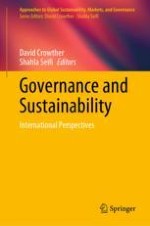2020 | OriginalPaper | Buchkapitel
12. Ethics of Sugar Cane Farming and Crushing in Maharashtra
verfasst von : Prabir Kumar Bandyopadhyay, Jacob Dahl Rendtorff, Bhavna Pandey
Erschienen in: Governance and Sustainability
Verlag: Springer Singapore
Aktivieren Sie unsere intelligente Suche, um passende Fachinhalte oder Patente zu finden.
Wählen Sie Textabschnitte aus um mit Künstlicher Intelligenz passenden Patente zu finden. powered by
Markieren Sie Textabschnitte, um KI-gestützt weitere passende Inhalte zu finden. powered by
